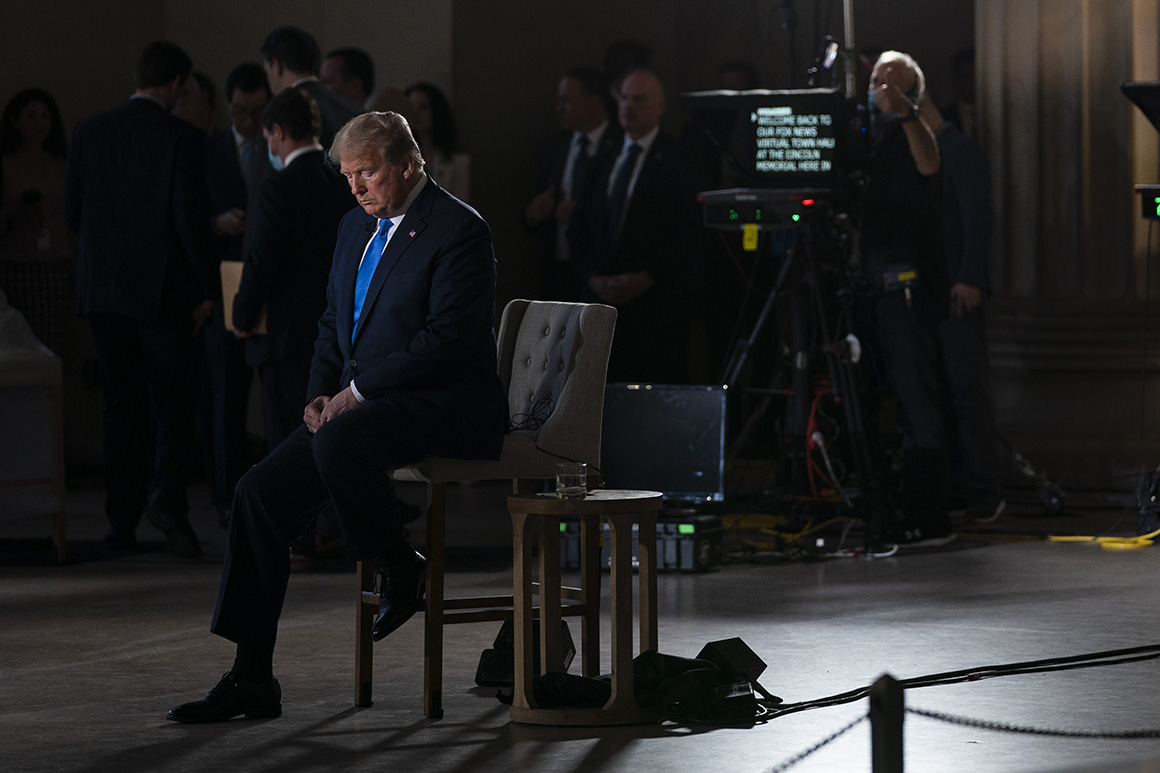
“I think we’re going to have an incredible following year,” Trump said from the Lincoln Memorial. “We’re going to go into a transition in the third quarter, and we’re going to see things happening that look good. I really believe that. I have a good feel for this stuff.”
It was a classic split-screen moment for the Trump administration, with the president leaning so heavily on his economic message that the health concerns surrounding a pandemic appeared secondary. Trump’s former Food and Drug Administration commissioner, Scott Gottlieb, warned Sunday of a potential explosion of new cases if states allowed workplaces, schools or other public areas to “let their guard down.” Gottlieb delivered the somber message as Trump returned from a weekend at Camp David, where he was surrounded by top advisers, including son-in-law Jared Kushner and National Economic Council Director Larry Kudlow who support the president’s economic push.
The Trump White House is preparing a proposal for tax and regulatory changes to boost the economy that it tentatively plans to release at the end of this week, according to interviews with eight former and current senior administration officials and Republicans close to the White House.
The president spent the weekend weighing the recommendations of his top advisers about which policy levers the White House should push to juice the economy in the third and fourth quarters — a list compiled by chief of staff Mark Meadows, Kushner, Kudlow, economic adviser Kevin Hassett and deputy chief of staff Chris Liddell.
“The president is eager to shepherd this economy again,” said Bryan Lanza, a former top official from Trump’s 2016 campaign. “It was sidelined by a bunch of unelected scientists, and now he is looking at it as an opportunity to do what America hired him to do: Act as the CEO and guide this huge mass of bureaucracy through these challenging times.”
Promoting a future economic boom carries its own political risks for the president, as the U.S. coronavirus death toll soars to more than 60,000 people — with no vaccine expected in the coming months of reopening. On Sunday, the president said the coronavirus response would be considered a success if 80,000 to 90,000 people died, moving the goal post after signaling in recent weeks a death count below current levels.
The president sees urgent economic action as critical as the economic devastation widens on his watch. Economic growth has collapsed from a sharp pullback in consumer spending and the shuttering of millions of businesses including restaurants, retail stores and hotels.
Roughly 30 million Americans have filed for unemployment benefits in the past six weeks. The Labor Department on Friday will release its latest measure of national unemployment, which Hassett has warned could be as high as 16 percent compared with March unemployment of 4.4 percent. Some private economists expect the figure to come in closer to 20 percent.
Many businesses and workers are bracing for the pandemic to spike again this fall amid flu season, even as many areas of the nation struggle to get the current phase of the outbreak under control. Those worries could restrain any economic resurgence or hit the stock market harder just ahead of the general election in November.
The economic damage is expected to hit far harder in the second quarter than the first, putting the entire year on track for a deep downturn even if the second half of the year delivers the boost Trump forecasts. Health experts have said a vaccine is unlikely to arrive until next year, if one even emerges, though Trump repeatedly said on Sunday he believes there will be a vaccine by the end of this year.
Source: politico.com
See more here: news365.stream






